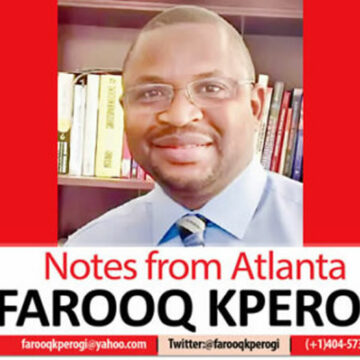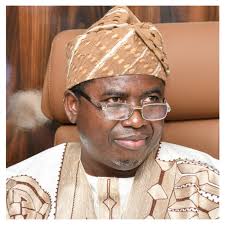In what irreverently humorous social media denizens are calling the battle between the “social media president” and the “Temu lawyer” (unflattering epithets to suggest that Peter Obi rules the Nigerian social media space, while Deji Adeyanju is a baby lawyer, who makes up for his inexperience through loud exhibitionism), Nigerian media law is about to experience a consequential extension of its sedate boundaries if Peter Obi makes good his threat to sue activist, Deji Adeyanju.
On August 26, Peter Obi’s legal team sent a pre-litigation letter, signed by Alex Ejesieme, SAN, demanding that Deji Adeyanju delete certain social media posts, issue a full, unreserved public apology on X and Facebook and in three national daily newspapers within seven days, or face litigation.
At one level, Obi’s decision is understandable. Adeyanju has called him a “fraud,” a “religious bigot,” “leader of the mob,” alleged that he “tried to give me money and called it ‘thank you for coming,” to buy loyalty, said he misappropriated Anambra State funds to invest in his family business, and even a “scum.”
Such vituperative outbursts are hurtful, even reputationally injurious. Yet, when you scratch the surface of Adeyanju’s posts, some of them rest on verifiable facts. And in libel law, truth is a complete defence.
Take, for instance, Adeyanju’s oft-repeated claim that Obi invested Anambra State’s money in a company his family had stakes in. That is not fabrication.
During a January 30, 2018, presidential town hall debate called The Candidates broadcast on the Nigerian Television Authority (NTA), Kadaria Ahmed, the host, asked Obi why, as governor, he invested $30 million of Anambra’s funds in International Breweries.
“I brought International Breweries into Nigeria and as a governor of a state. They built a greenfield facility in the state, and they came to me and said, ‘As our partner, we want you to own 15 per cent of this company,’ and I said to them, ‘No, right now, I am the governor of a state,’” Obi said. “I know the future of this brewery, and I want the state to own 10 per cent, and since I’m no longer involved in the company, they can own five per cent. I put in $30 million of state money there. It’s now worth $100 million and it’s still there. No other state in this country has such investment.”
(A Cable report found that the investment was worth only $5.38 million as of June 2022). Although Obi’s family had no direct stakes in International Breweries, it does in SABMiller/AB InBev (via NEXT International Limited, where, according to Premium Times of January 11, 2023, “Mr Obi was listed as a director while his wife, Margaret, served as secretary”). SABMiller/AB InBev was International Breweries’ parent company. Obi himself, in his response to Kadaria, said he was “no longer involved in the company,” which means he was at some point.
Adeyanju’s framing of this as evidence of corruption may be tendentious, but it certainly qualifies as conflict of interest.
To sue for defamation here would be to criminalise stating a mere uncomfortable fact, or even restating Obi’s own words.
The same applies to the charge of religious bigotry. On April 1, 2023, Peoples Gazette published an audio recording of Obi speaking with Bishop David Oyedepo. In that call, Obi told the cleric, “Daddy, I need you to speak to your people in the South-West and Kwara, the Christians in places like Kogi and Niger. This is a religious war. Please, Daddy, help us.”
The audio has been verified as authentic by multiple independent fact-checkers, and Peter Obi’s face-saving litigious bravado to sue the news site petered out without action.
If Adeyanju extrapolates from this to say Obi is a religious bigot, he is offering commentary on a verifiable utterance, however unflattering the interpretation may be. Courts in democratic societies have traditionally recognized such commentary as “fair comment.”
There is also the matter of Obi’s offshore holdings exposed in the Pandora Papers investigation by Premium Times. The October 4, 2021, report was unambiguous that Obi broke at least three Nigerian laws by failing to declare assets he stashed abroad, including those held by his children. The law requires a public officer, and a former public officer, to declare all assets, whether held directly or through a company.
Adeyanju has portrayed Obi as a fraud. While the label itself is an insult, its scaffolding is not conjured from thin air; it is anchored in credible investigative journalism alleging violation of tax and asset-declaration laws.
Even more, Obi’s past brushes with allegations of financial impropriety are part of the public record. A July 4, 2009, Vanguard report, for instance, said police in Lagos intercepted N250 million in cash at then Governor Peter Obi’s private office in Apapa after a tip-off from one of his aides.
The money, transported in jeeps, was initially guarded until Obi arrived, and upon inspection was found stacked in suitcases. Obi said it belonged to the Anambra State government and was meant for a contractor who requested cash, though he couldn’t explain why it wasn’t paid via cheque or draft.
The cash was later deposited into Anambra State’s government account, but suspicions grew because the contractor never appeared, and Obi traveled abroad soon after. The Inspector-General of Police ordered the Force CID to investigate possible money laundering and vowed to fully uncover the circumstances behind the movement of the funds.
Although Obi denied wrongdoing, the story complicates any claim that it is defamatory to question his financial probity.
Adeyanju hasn’t invoked this incident, but if sued, he could legitimately enter it into evidence to support his contention that Obi has a checkered financial history.
All this is not to say Adeyanju is free of overreach. His claim that Obi “pays all influencers online” is an assertion of fact without any supporting evidence. Likewise, his unrestrained declaration that Obi is “always a scum” cannot be tied to any verifiable occurrence. These are reckless personal insults masquerading as critique.
If Obi wants to pursue defamation on narrow grounds, such statements present his strongest case, although Adeyanju’s lawyer could argue that these are mere rhetorical hyperboles.
As I pointed out in past columns, Nigerian law protects opinion, even when harsh or insulting, if expressed in the heat of passion. Courts have ruled in cases like Bakare v. Ishola and Ibeanu v. Uba that calling someone a thief or ex-convict in anger amounts to “vulgar abuse,” not defamation.
Judges hold that such insults are commonly understood in our national culture as expressions of anger, not factual claims, similar to what’s known as rhetorical hyperbole in U.S. media law.
Still, the broader question is whether a politician of Obi’s stature should be suing in the first place. As I argued in an October 10, 2020, column titled Litigious Terrorism of Ortom, el-Rufai, Fani-Kayode and Osinbajo, prominent politicians who sue private citizens are cowards who derive strength from intimidating weaker targets and who treasure the privileges of being in the public eye, but chafe at the scrutiny that comes with it.
Defamation suits by public figures often function as Strategic Lawsuits Against Public Participation (SLAPPs), which are intended not so much to win damages as to deter dissent by threatening critics with costly legal defense.
In fact, the more Obi tries to suppress Adeyanju’s speech through litigation, the more he inadvertently validates the suspicion that he has something to hide. The better response would be to counter Adeyanju in the marketplace of ideas, provide clarifications, and, where necessary, admit to mistakes. Litigation only magnifies controversy and risks branding him as intolerant of scrutiny.
Public figures the world over are expected to endure harsher criticism than private citizens. That’s the price of seeking the limelight. Nigerian democracy will be ill-served if every unflattering remark about a politician must be tested in court. The role of citizens and activists, even the loud-mouthed and provocative ones, is to probe, provoke, and prod. The role of politicians is to answer, not muzzle.
Adeyanju can be uncouth, even defamatory at times. I once vigorously disagreed with him (in defense of Peter Obi, no less) when we appeared on Seun Okinbaloye’s show after the 2023 election.
But in this case, a significant portion of his criticisms is traceable to Obi’s own statements and the reporting of credible outlets. If Obi proceeds with litigation, he risks discovery processes in which these documents, reports, and audio leaks will be tendered in open court. That would hardly burnish his reputation.
The wiser course is to acknowledge that public life comes with scrutiny, sometimes unkind, and to save the courts for matters where real injury, unsupported by fact, is evident.
Obi’s recourse to litigation feels less like a defense of reputation than an attempt at litigious intimidation. As with others before him, this strategy is unlikely to win him either legal or moral victory.
*Farooq Kperogi, author and Professor of Journalism @Kennesaw State University, is a columnist with the Nigerian Tribune









